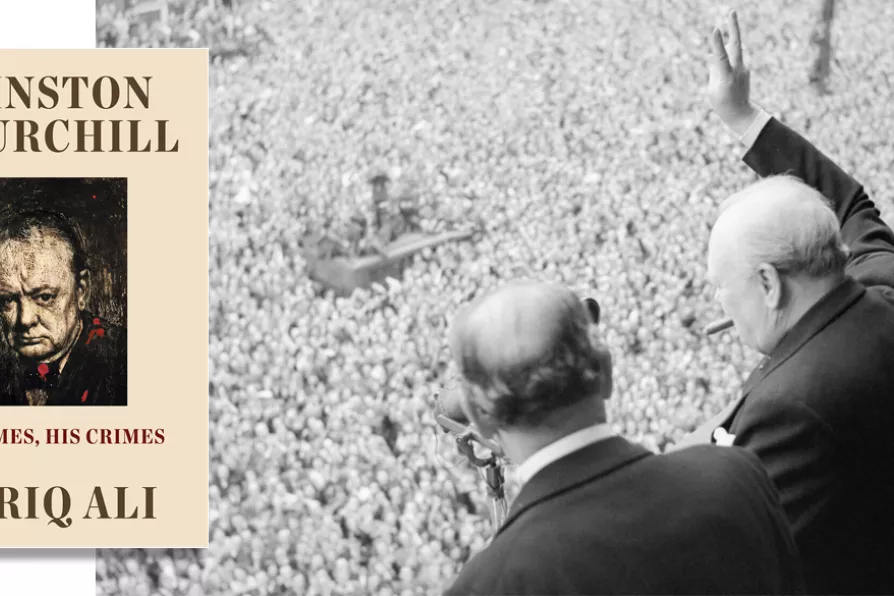Releases from Rahsaan Roland Kirk, Maggie Nicols/Robert Mitchell/Alya Al Sultani, and Gordon Beck Trio and Quintet
Churchill without the aura
CHRIS MENON recommends Tariq Ali’s debunking the myth of Churchill

 VE Day, May 8 1945 (L to R) John Anderson, the Chancellor of the Exchequer, Winston Churchill, Ernest Bevin, the Minister of Labour
[Public Domain]
VE Day, May 8 1945 (L to R) John Anderson, the Chancellor of the Exchequer, Winston Churchill, Ernest Bevin, the Minister of Labour
[Public Domain]
Churchill: His Times, His Crimes
by Tariq Ali
Verso £20
IN THIS 400-page biography of Winston Churchill, Tariq Ali masterfully unmasks the man behind the myth. Using a wide-ranging history of his times to provide context Ali analyses Churchill’s pivotal role in many crimes against both working-class people at home and those overseas who he viewed as a potential threat to the British empire.
It’s a timely book, given the willingness of both the Tories and Labour to embark on post-imperial adventures while invoking the myth of Churchill as ideological cover for such moves.
Similar stories

New releases from Robert Forster, Self Esteem, and Arve Henriksen

New releases reviewed by IAN SINCLAIR

Badenoch under pressure to sack shadow justice secretary

New releases from Brown Horse, Craig Finn, and Julien Baker & TORRES










